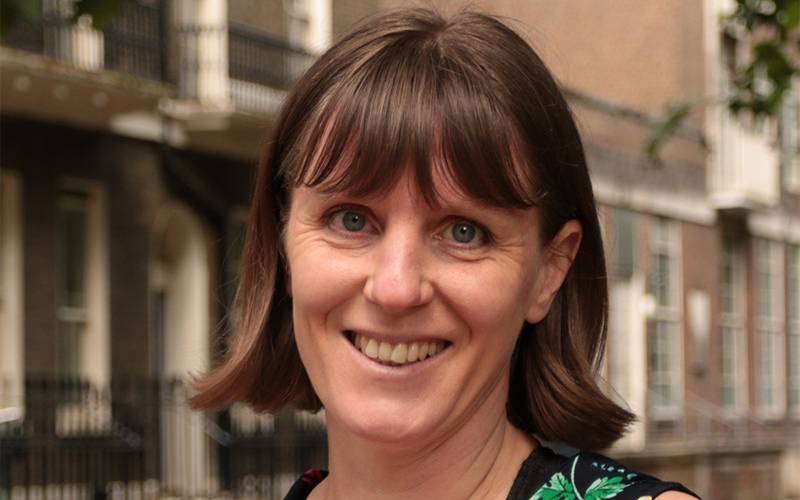This month we speak to Dr Jenny Woodman to find out how her research is improving the health of the public.
 What is your role and what does it involve?
What is your role and what does it involve?

I am an Associate Professor in Child and Family Policy at the UCL Social Research Institute. My research describes and evaluates how public services are currently delivered to children, young people and their families, including those at higher risk of poor outcomes. I also look at how this varies across the country. By doing this, we identify opportunities to better organise and deliver these services to benefit children and families, reduce inequalities and in some cases free up capacity in the service.
Although my work is largely focused on health services and most usually primary care, I also look across health, education and children's social care. For example, I am planning a study about Young Carers (children and young people with caring responsibilities which impacts their wellbeing). In this study I would like to investigate how this diverse group of children are defined and identified in health, education and children’s social care.
As well as looking across services, my work looks across family member – the health and wellbeing of a child and young person is inter-related with the health and wellbeing in the whole household and family. One way of helping the child is to help the adult who cares for that child.
One of my key roles is as co-Director of the NIHR Children and Families Policy Research Unit, generating and interpreting high quality research evidence for the Department of Health and Social Care (DHSC) and other government departments. I meet often with policy teams and analysts from DHSC. Working with DHSC at the interface of research and policy is a key part of my job.
How are you improving the health of the public?
In my view, descriptive studies can have some of the biggest impact. They can help direct policy attention and funding to groups who might need it most (by describing the extent of the need) and inform decisions about innovation and service improvements in our business-as-usual public services. It is very difficult to make national and local policy decisions about a service when there is no national picture of how that service is currently delivered overall or for specific groups.
At the moment, I have several studies which will describe how health visiting is delivered across England, jointly led with Prof Katie Harron (UCL). Health Visiting is a key part of the universal services for children under 5 and their families in England – in some cases, a member of the health visiting team may be the only professional the family is seeing before the child starts school. These studies are also investigating the impact of Health Visiting, with many caveats about how possible this is without experimental designs. We don’t know much about the distribution of health visiting across different groups of families or across the country. These descriptive studies can act as the starting point for conversations about how close or far we are from the type of service we think works best and how we might feasibly improve things.
What do you find most interesting or enjoyable about your work?
The teams I work in are multidisciplinary and the studies I work on tend to combine epidemiological analyses with health economics and qualitative methods. We also include commissioners and practitioners in the teams. This coming together of perspective and pieces of the puzzle is important for research insights but is also one of my favourite parts of my job.
How have cross-disciplinary collaborations shaped your research?
Cross-disciplinary collaborations are absolutely core to what I do. For example, within our studies using epidemiological analyses of national administrative datasets, the social sciences focus us on social and political structures, making sure we centre the experiences of the child and family including those less often heard.
What advice would you offer to others interested in developing cross-disciplinary research?
I have been lucky enough to work in both epidemiology and social science departments. Understanding the academic context of multiple disciplines can really help in bringing teams together and also in designing and running the studies. ‘Socialising’ yourself in the different disciplines is likely to be useful in the long run.
What's next on the research horizon for you?
We are starting the new programme of the NIHR Children and Families Policy Research Unit in January 2024. I’ll still be working with the Department of Health and Social Care but we are expanding our horizons by making stronger connections with the NIHR Applied Research Collaborations known as ARCs (place-based health and care research) and the Integrated Care Boards and Partnerships. We hope this is another way we can generate the most relevant research to inform policy, at the local level.
If you could make one change in the world today, what would it be?
Proper housing and enough money for food and social participation for every child, young person and adult.
 Close
Close

